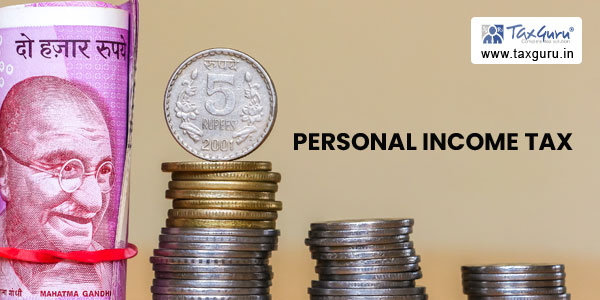PERSONAL INCOME TAX PERSPECTIVE IN THE BUDGET 2023 – TAXING THE GROSS INCOME AND GROSSING UP REASONABLE TAX
Finance Bill 2023 is a long -cherished desire come true of the Central Government, which has been canvassing for quite some time to do away with the archaic exemption raj of the Income-tax Act,1961. Following the Government’s taxation ethos, the Finance Bill 2023 has heralded the virtual shedding of Chapter-VIA and many other deductions, except for exercise of the choice of a tax-payer to follow the old regime.
The New Sec.115BAC opened the doors for taxing the Gross Income with no Standard Deduction, no House Property Loss and of course, no Chapter-VIA deductions. The new tax regime has come in to stay as the default taxation structure.
It’s true that the Bill has proposed NIL tax for a taxable income of Rs.7 lakhs. But, the fine print is that a salary earner with a Gross Salary of Rs. 7 lakhs in the earlier tax regime was able to claim a standard deduction of Rs.50,000/-, Sec.80C deduction of Rs.150000/- , though not any other deductions and still pay no tax. With the onset of the new dispensation, he has no tax even in the new proposal, with no differential advantage to him. The taxable income under the new definition is the Gross earning itself.

But, the proposal to split the tax slabs brings some advantage at every slab, ranging from Rs.33,500/- for the Rs.7 lakh income group to Rs.45,000/- to the Rs. 15 lakh income group. The first slab starts at Rs.3 lakhs instead of Rs.2.5 lakhs earlier and this may be viewed as the revision of taxable minimum for non-seniors.
The promise of the next-gen ITR format helps the assessee-filers of different kinds of income, and the choice of the ITR format is done away with. It also helps the tax professionals to elicit data for a unified format, while preparing the filing on behalf of the clients.
Governments always tap new potential areas of tax collection and that is necessary too; as such, online gaming income is brought appropriately in to TDS and tax nets. ‘All’ in the game!
There are no major changes in the tax procedures and the digital management of the Department continues, hopefully with more robust practices.
The post-COVID world has thrown new challenges in all spheres of human life and the welfare Governments and particularly Democracies need to bring relief specifically in the tax slabs and rates. Indian Budget this year had many things to address from sustainability to development from environment to education to internal and external security. But , with inflationary and recessionary trends of the Global economic scenario, personal income tax payers need to be incentivized with innovative ideas infused into the Budget exercise like PM VIKAS, Mahila Bachat Patra offering a higher interest rate and perking up the maximum limits in retirement benefit schemes (Senior Citizen Saving Schemes cap raised from Rs. 15 lakhs to Rs.30 lakhs) and continuance of the already initiated development schemes ; it would have met the expectations of the Indian middle class striving hard to survive, compete with the global citizens and succeed in the race.
With accent in the Budget, on the all-round development of the economy, Government would have devised personal tax incentives for investment in the economic development by direct investment or in any Government sponsored development schemes.
True that the CPC processing of the ITRs has been faster than before in some cases, there is a definite need to prescribe specific timelines for disposal of the rectifications, appeals and consequential orders which work in favour of the affected assessees.
The silver lining is there are no fresh direct tax levies, and there is a reduction in surcharge rates plus digitalization is encouraged by upping the turnover limits for presumptive taxation of digital businesses under sec.44AD and 44ADA and the fillip by offering a fair tax rate of 15% to new co-operatives foraying into production anew.





